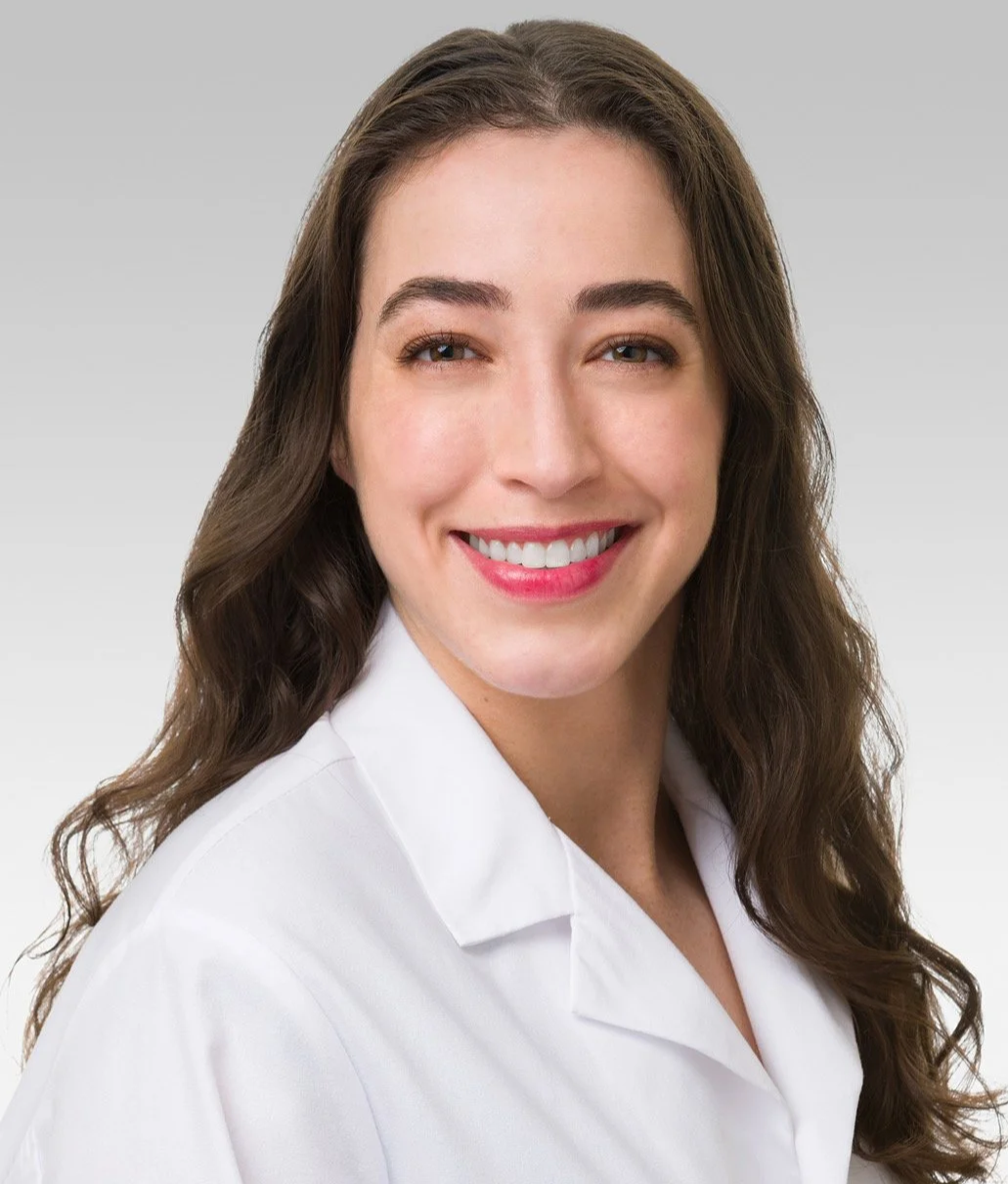Fall 2025 Vaccine Q&A: What You Need to Know About Flu and COVID-19 Vaccines
Written by Melissa Schenkman, MPH, MSJ
Based on expert insights from Dr. Lindsay Morrison, Board Certified Infectious Disease Doctor, and Dr. Alexandria Yarborough, Pharmacist in Charge
As fall approaches, many millennials are facing confusion about vaccine recommendations amid changing guidelines and mixed messaging. We spoke with two healthcare experts to address the most pressing questions about flu and COVID-19 vaccines for the 2025-2026 season.
Note to Our Readers - The information contained in this article is based on flu and COVID-19 fall season available as of September 30, 2025. We will update as vaccine guidelines necessitate.
What are some common misconceptions about vaccines that you're hearing?
Dr. Morrison: The most frequent concern I hear is that vaccines make people sick. While vaccines can make you feel unwell for a day or two, this isn't the same as getting sick from an infection. These symptoms occur because vaccines are immunogenic—they're designed to activate your immune system. When you feel achy or develop a low fever after vaccination, that's your immune system working, not an actual infection.
Dr. Yarborough: Many people worry about vaccine ingredients, particularly mercury or aluminum. However, thimerosal (the mercury-containing preservative) is only used in multi-dose vials, and in my over 10 years of giving flu shots, I've never used a multi-dose vial. The single-dose vaccines don't contain thimerosal. If you have concerns about ingredients, talk to your pharmacist or doctor about what's actually in the specific vaccine you're receiving.
How might current political changes affect vaccine access?
Dr. Morrison: As of this recording, ACIP (Advisory Committee on Immunization Practices) recommendations haven't changed yet, but there are concerns about potential shifts in how scientific data is reviewed and disseminated. Some traditional processes, like the annual flu meeting, have already been disrupted. This creates confusion when different agencies aren't aligned on recommendations.
Dr. Yarborough: The biggest challenge I'm seeing is the variation in mandates from state to state. Some states now require prescriptions for vaccines that were previously available through pharmacy standing orders. This creates access barriers that didn't exist before, and unfortunately, I'm having to turn patients away for care.
What can we expect from this year's flu season based on Australia's data?
Dr. Morrison: Australia experienced a severe flu season—the second worst in a decade. It peaked very early (April-May) with rapid community spread and high hospitalization rates, particularly among people over 65 and pediatric patients. Low vaccine uptake correlated with these severe outcomes. While we can't predict exactly what will happen in the Northern Hemisphere, this suggests we should prepare for a potentially severe season.
What strains does this year's flu vaccine cover?
Dr. Yarborough: The 2025-2026 flu vaccine is trivalent, covering three strains: two A strains (H1N1 and H3N2) and one B strain (Victoria virus). This applies to regular flu shots for people under 65, high-dose vaccines for those 65+, and the nasal spray FluMist.
Lindsay Morrison, MD, MSCI, is a double board-certified infectious disease and internal medicine physician in Georgia.
How effective is the new nasal flu vaccine (FluMist)? </h2
Dr. Morrison: FluMist was approved in September 2024 and performed reasonably well in its first season, though injectable vaccines had a slight edge in efficacy. FluMist is a live attenuated vaccine, so it's not suitable for highly immunocompromised individuals, children under 2, or adults over 65. However, it offers convenience—you can self-administer it at home. For millennials who are healthy and want convenience, it's a viable option, though I generally recommend injectable vaccines for slightly better effectiveness.
Who is eligible for the COVID-19 vaccine this season?
Dr. Yarborough: Currently, people 65 and older are automatically eligible. For those under 65, you need to have an underlying health condition. The list is quite comprehensive and includes conditions like diabetes (type 1 or 2), asthma, pregnancy, obesity, being a current or former smoker, and even physical inactivity. If you have any chronic health condition or take medication for an ongoing condition, you likely qualify.
How does the updated COVID vaccine differ from previous versions?
Dr. Yarborough: The main change is that it's the updated 2025-2026 formula targeting the most current circulating strains. The manufacturing process and safety profile remain the same. The challenge isn't the vaccine itself—it's the access and eligibility requirements that have become more complex.
When should I get my vaccines this fall?
Dr. Morrison: The optimal window is September through November. If you're not at high risk for severe flu (no respiratory conditions or immunocompromising factors), you might consider waiting toward the later end of this range since flu vaccine immunity can wane over time. However, given Australia's early peak, getting vaccinated sooner rather than later might be wise.
Is it safe to get flu and COVID vaccines at the same time?
Dr. Morrison: Yes, concurrent administration is safe and actually may provide enhanced benefit for the COVID vaccine when given with the flu shot, though this data is specific to mRNA COVID vaccines. Getting both together is convenient and eliminates the need for multiple appointments. I personally get both vaccines together.
Dr. Yarborough: It's incredibly convenient, and I encourage patients who tolerate vaccines well to get both simultaneously. I can administer two vaccines in one arm or one in each arm—whatever the patient prefers, as long as they're both non-live vaccines, which flu and COVID vaccines are.
What if I don't feel sick after getting vaccinated—is it still working?
Dr. Morrison: Absolutely. Not everyone experiences post-vaccine symptoms, and the vaccine is equally effective whether you feel symptoms or not. If you don't feel unwell after vaccination, it doesn't mean your immune system isn't responding appropriately.
Why should healthy millennials in their 20s, 30s, and early 40s get vaccinated
Dr. Morrison: Even if you're not high-risk by age alone, vaccination decisions affect both personal and community health. When more people are vaccinated, it protects the entire community, including vulnerable populations. We've grown up not seeing diseases like polio because of successful vaccination programs, but these diseases aren't gone—they're controlled. We're already seeing measles outbreaks where vaccination rates have declined.
Additionally, many millennials are parents, and pediatric vaccination recommendations are also changing. Getting sick with flu or COVID means potentially being down for a week or more, versus a day or two of mild symptoms from vaccination.
Dr. Yarborough: Remember that these vaccines represent preventative healthcare. They're not just about avoiding illness for yourself—they're about protecting your community, especially during holiday seasons when we're gathering with family members who might be more vulnerable.
Alexandria Yarborough, PharmD, is a Community Pharmacist and Pharmacist in Charge at Sam’s Club in South Carolina. She has almost a decade of experience in the field of pharmacy. She has administered thousands of flu and COVID-19 vaccines.
What are your top three recommendations for millennials making vaccine decisions this fall?
Dr. Yarborough:
These vaccines are safe and effective, extensively tested before reaching the public
Vaccination is preventative healthcare that protects both you and your community
Consider the bigger picture—it's not just personal health, it's public health
Dr. Morrison:
Consider the risk-benefit ratio: a minor inconvenience (potential 1-2 days of feeling unwell) versus major benefits (avoiding week-long illnesses, preventing severe complications)
Even if you do get infected after vaccination, you're likely to have milder symptoms and recover faster
Consult with your healthcare provider about your individual circumstances and eligibility
For the most current information about vaccine eligibility and access in your area, consult with your healthcare provider, pharmacist, or check with your state health department, as recommendations and requirements may vary by location.
Want to hear more from Dr. Morrison and Dr. Yarborough? Check out the YMyHealth podcast on YouTube and your favorite podcast streaming platform!



